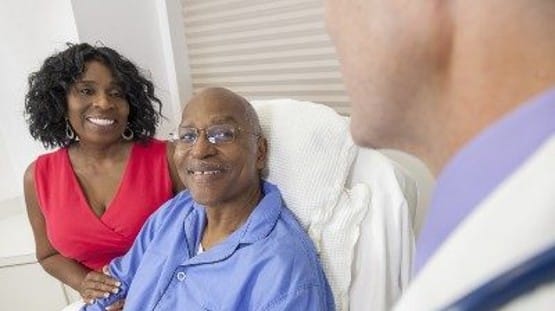
Study findings published Friday in Cell Reports are the result of the work of a team of scientists at VCU Massey Cancer Center.
The team discovered a previously unknown interaction between proteins that is responsible for supplying energy to tumor cells and could hold significant implications for the development of future treatments for colon cancer.
“This study is really exciting because we may be able to use these findings to inform the development of an entirely new cancer drug right here at Massey,” study author Dr. Can Senkal, a member of the Cancer Biology research program at Massey and an assistant professor in the Department of Biochemistry and Molecular Biology at the VCU School of Medicine, said.
A class of fatty compounds known as ceramides may hold the answer. Ceramides regulate a number of vital cellular functions, and many cancer drugs stimulate ceramide generation to help fend off disease. When the production of ceramide is cut off, cancer cells can survive and grow more efficiently.
The scientific team began extensively screening cells in the lab to identify what proteins regularly interact with ceramide-producing proteins to identify potential patterns that could warrant further investigation. Ceramide synthases, the enzymes responsible for the generation of ceramide, come in a variety pack of six different flavors: Ceramide synthase 1-6.
Senkal’s team’s research observed that the first flavor, ceramide synthase 1 (CerS1), was highly interactive with a particular protein known as heat shock protein 27 (Hsp27). Heat shock proteins act like chaperones for other proteins to retain their full function; however, an overabundance of them can tip the scales and prevent ceramide synthases from doing their job. They also noticed that Hsp27 activity was higher in many colon cancer cells while at the same time CerS1 activity was significantly lower, prompting Senkal and his team to consider if the absence of one was connected to the presence of the other.
“There is this yin-yang kind of relationship, which gave us the idea to follow it,” Senkal said. “Hsp27 is like the bad guy holding back the good guy, CerS1.”
Through the study, they identified a specific biological mechanism through which Hsp27 interacted with and inhibited the function of CerS1 in colon cancer cells. By deliberately blocking the activity of Hsp27 in these cells, the researchers confirmed the decreased presence of Hsp27 led to a heightened reactivation of CerS1, which in turn forced a reduction in mitochondrial function.
“Cancer cells rely on mitochondria to have the energy to multiply. Without it, the cancer cells can no longer sustain the amount of energy they need and die,” Senkal said.
By blocking the function of the heat shock proteins, the team was able to reactivate the cellular hand that could pull the plug on the power source connected to the cancer, according to Senkal. The revelation led the study authors to suggest that Hsp27 could be a primary target in the creation of novel therapies for colon cancer.
“We can really go after these protein-protein interactions and precisely reactivate certain enzymes while we don’t touch others,” Senkal said.
The findings come after a decade of research by Senkal and his team, in an area which he noted isn’t really being explored by anyone else. He said he knows the discovery will not be an overnight achievement, but hopes to collaborate with other scientists at Massey in a long-term effort to apply findings to in-house novel drug development at the cancer center.
The study showed encouraging results in colon cancer, but the hope is to broaden the scope of research to additional solid tumors in which the overexpression of Hsp27 has been observed, including lung, pancreatic and prostate cancers.
“We hope to demonstrate this connection in other tumors as well, which might better represent the patient population in Massey’s catchment area,” Senkal said.










